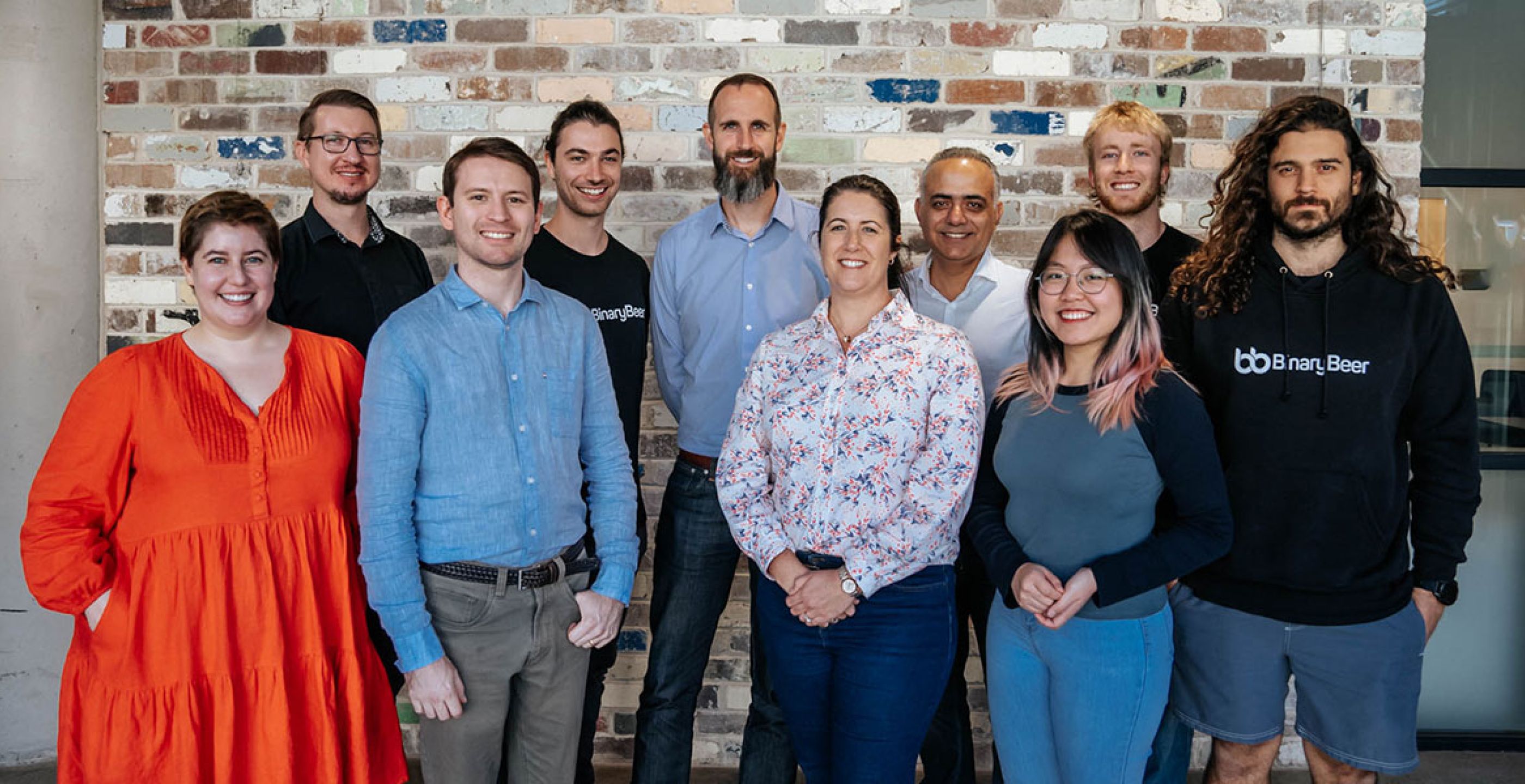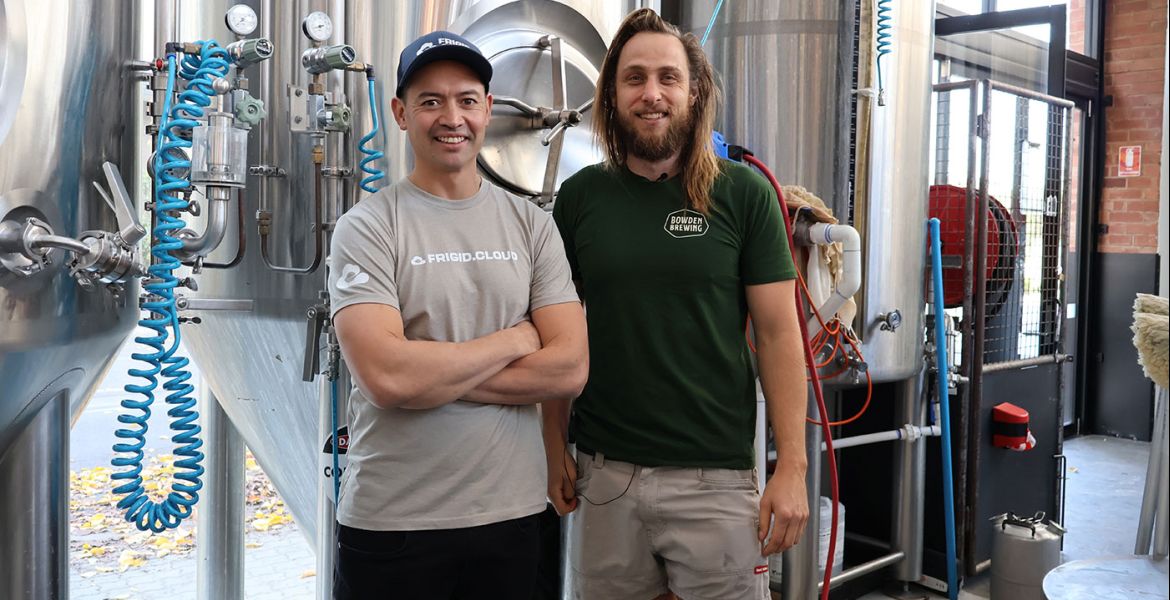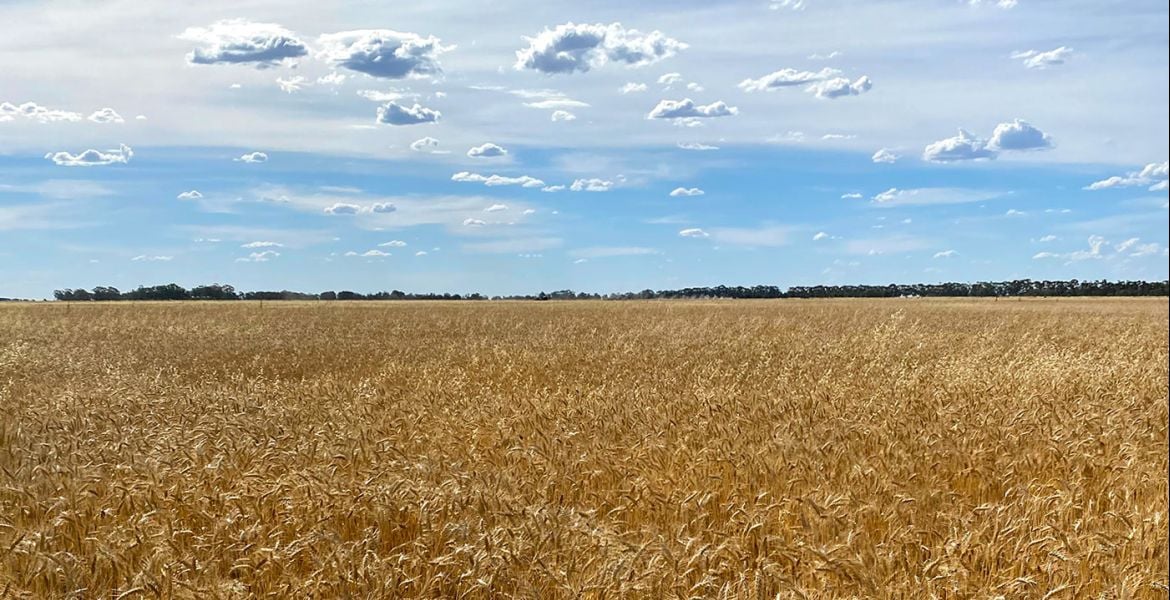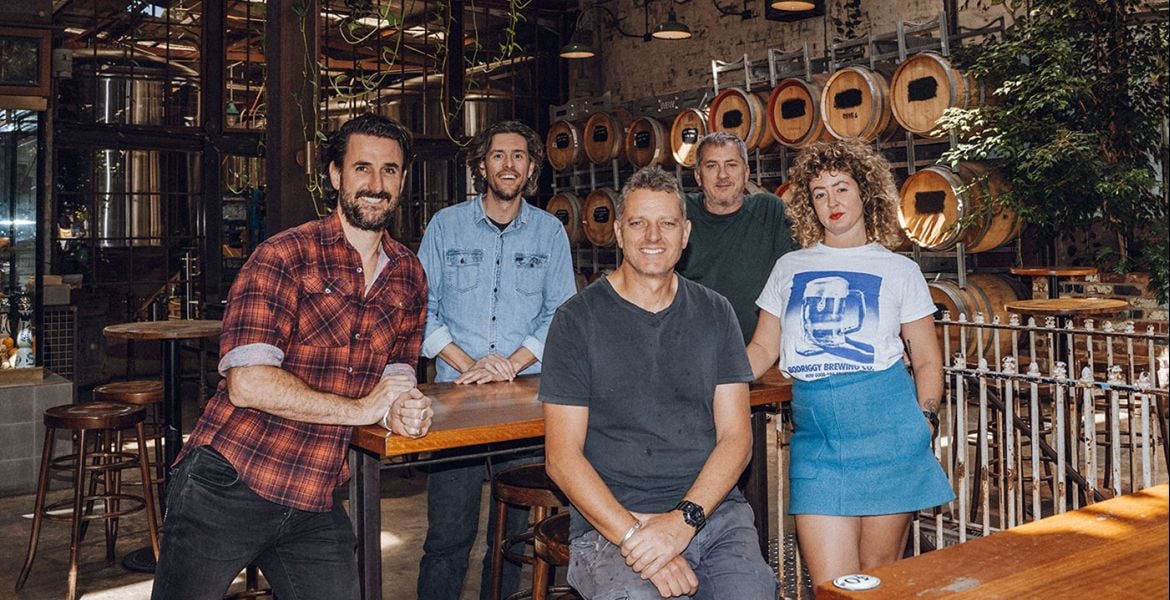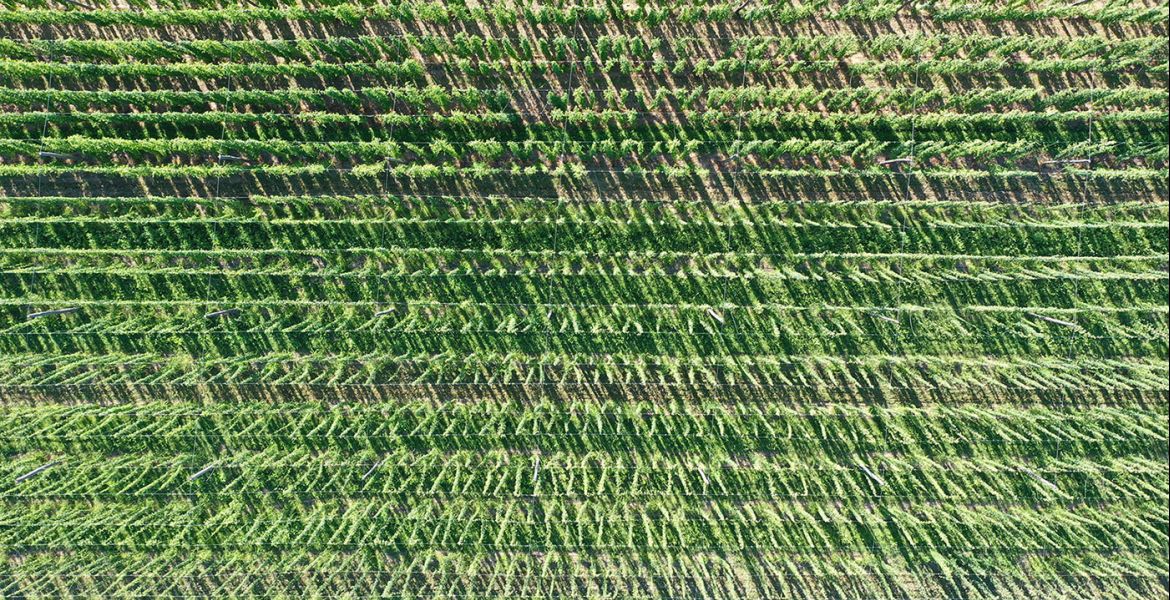As a port city, Wollongong has long been an export hub. But look beyond the coal and grain and there’s another local product that’s been finding its way into major overseas markets: Australian beer tech.
BinaryBeer and their smart keg product has been picked up by Asahi Europe & International to use on their kegs. BinaryBeer CEO, Michael Burton says it’s a big moment for the Wollongong-based business, with Asahi’s decision to use their KegLink technology across multiple European countries showing that their keg tracking system adds value to one of the world’s largest brewers.
“For us, it's a very big deal,” Michael says.
“It's further validation of what our solution can do around improving quality, efficiency and sustainability.”
BinaryBeer’s KegLink is a sensor that can be easily added to kegs and beyond telling brewers where that keg is, gives other insights such as its temperature, when it is taped and when it empties. We first wrote about the business when it was in its infancy and Michael was working with Five Barrels and a local pub to trial the tech and since then, it’s come a long way. Michael says for them, having their technology deployed by Asahi in parts of Europe shows that the system can suit brewers of all sizes.
“For us, it's really exciting to be able to be working with a brewery that has so much scale,” Michael says.
“I’ve always loved the scalability of beer. For craft brewers, we can do amazing things across their entire operation but as you go up in scale, rather than the problems growing with the size of the brewery, the whole draught industry is designed for scale. So the vision has always been to scale with it.”'
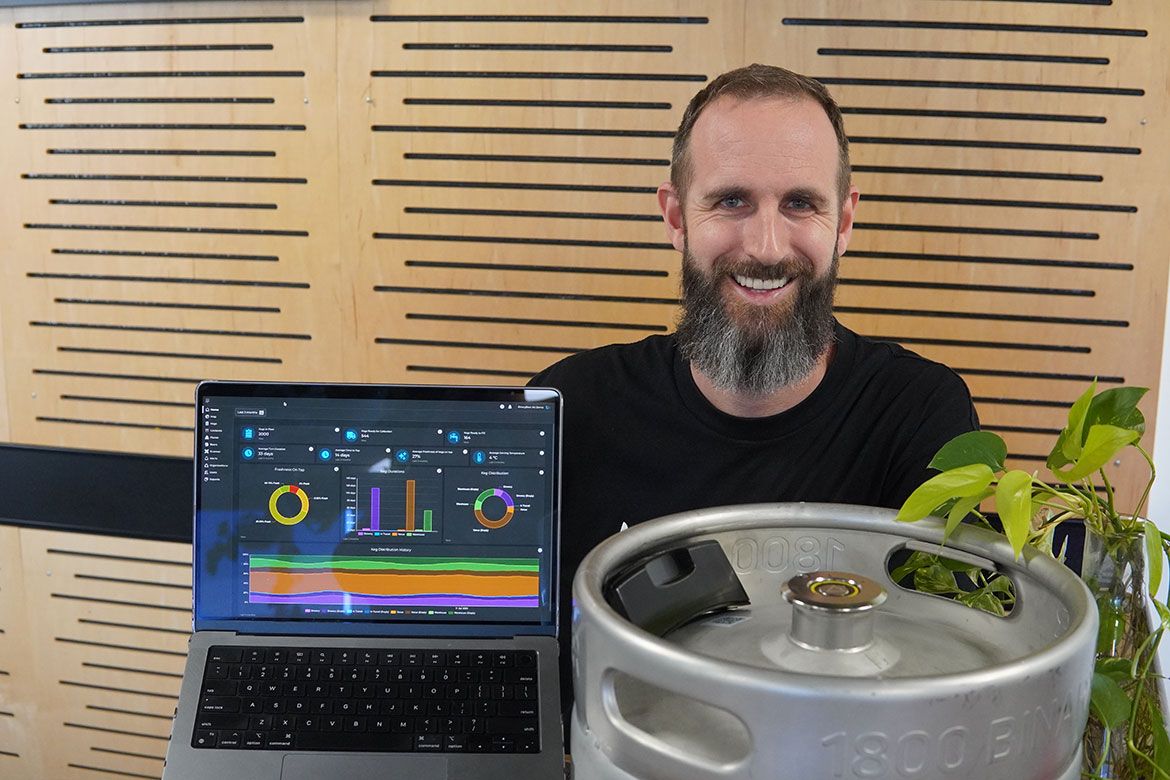
Alongside seeing their tech used by Asahi in Europe and by breweries here and in Asia, BinaryBeer also launched their latest KegLink sensors in America during this year’s Craft Brewers Conference (CBC). Having also been a part of the major craft brewers conference in 2022, Michael says the interest from American brewers this year showed how much interest in what they do has grown in a relatively short time.
“There’s just been this industry shift,” Michael says. “Where, rather than us having to tell the industry what smart keg technology is and what it can do, they're coming to us. So, it’s really exciting to see that shift in awareness around it.”
Partially Michael thinks that’s thanks to a wider understanding of the Internet of things, but in a post-COVID world, he sees breweries as being more interested than ever in embracing digital innovation.
Michael adds that interest also comes from the fact KegLink and its associated software allows breweries to really understand the carbon emissions across their keg fleet. Given breweries haven’t historically had the ability to see what happens to their beer once it leaves their four walls, smart keg technology means they can granularly understand where it goes, how long it stays somewhere and the emissions created by each step of the process.
“We're now able to give fine-grain information about the transport,” Michael says. “How many different shipments it’s going through, the distance that it's travelling, how much fuel is consumed and the refrigeration.”
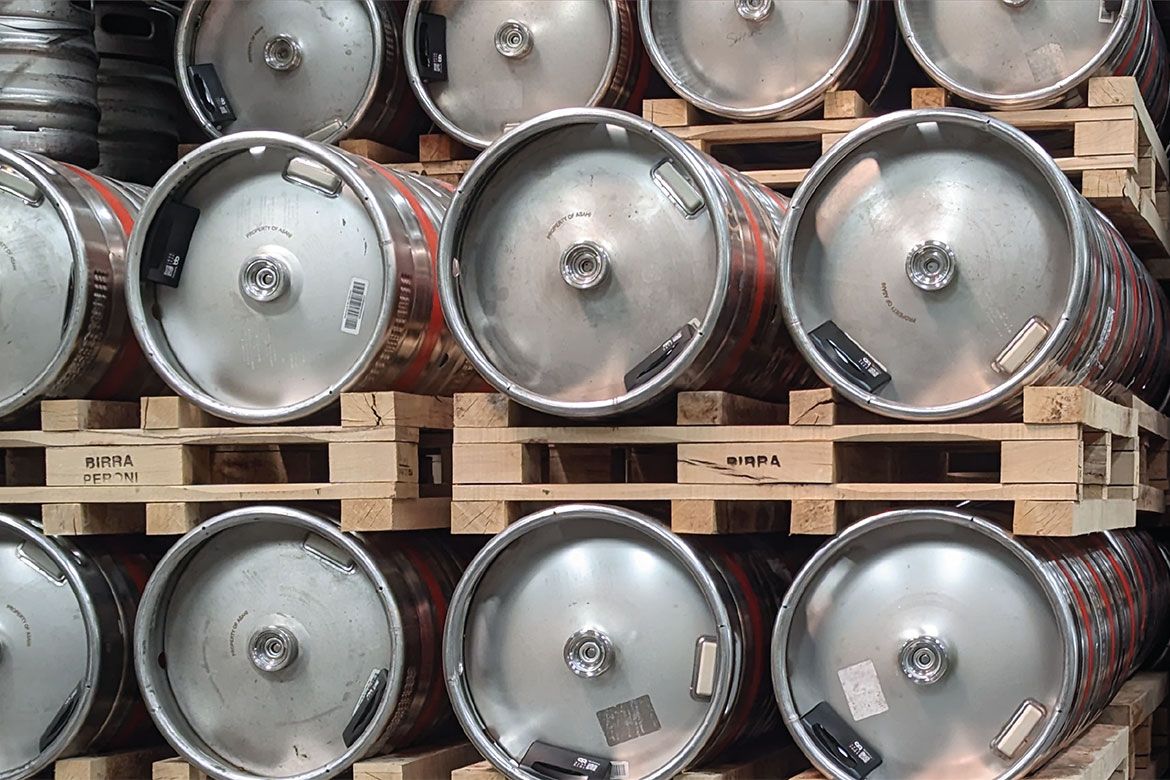
Sure, best practice is to ensure a hoppy beer stays cold from the moment it's made to when it reaches a drinker’s mouth, but Michael says understanding a keg’s path gives breweries, whether they're Asahi in Europe or Five Barrels in Wollongong, the ability to ship smarter.
“It’s a complex supply chain,” Michael says.
“It’s more about managing stock more effectively, like making sure you’re not spending too long in a certain warehouse.
"We know beer drinkers are willing to pay more for a beer that is considered sustainable and studies show that over 40 percent of the emissions of the grain-to-glass carbon footprint of beer occurs downstream from the brewery.
“I think this is one of the most powerful things we can do now on the sustainability path. Being able to encompass more of that grain-to-glass footprint of the beer and giving brewers more visibility and control of what's happening downstream at the brewery so they can make small changes that can have a big impact."
Move over coal…



